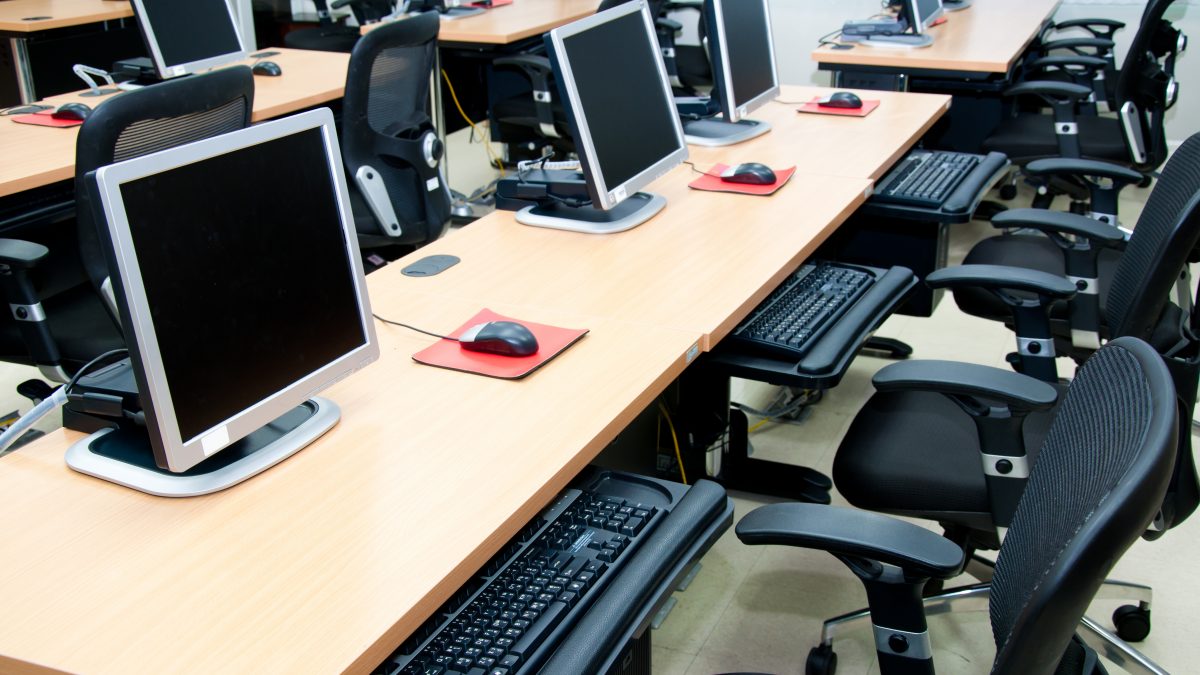Alan Turing’s legacy brings a computer classroom to Malawi
It’s 12.30pm and for once the Edinburgh weather is being kind: not sunny, but it’s not raining. In a tiny courtyard in what used to be a nursery-school, a barbecue is smoking. It’s not the type of barbecue that you might find at a DIY store end-of-summer sale – this one has been bolted together by computer engineers from parts of defunct computers.
But it’s doing its job, and hungry volunteers working with the Turing Trust are queuing for burgers and sausages. It’s loading day at the Turing Trust, where a shipping container is being loaded with refurbished computers to set up more than 20 new school computer labs in Malawi.
Alan Turing, in whose honour the Turing Trust was founded, would have approved. His approach was always hands-on even if his technical precision was not all it might have been. During World War 2, after his famous work cracking the secrets of the Enigma ciphering machine had been completed, he was put to work on a top-secret engineering project to create a secure way for phone calls to take place without being vulnerable to eavesdroppers.
This was the Delilah project – until recently still kept under the wraps of the Official Secrets Act. But Alan Turing was not the best person to put in a workshop with a soldering iron, as Donald Bayley, one of Turing’s wartime colleagues recalled: “I came into the hut, they said just see what’s what to start with.
“This chap had his shirt hanging out. There were resistors and capacitors, as fast as he’d soldered one on another would fall off. It was a spider’s nest of stuff – a complete mess … all soldered anyhow, and hoped they’d hold together. He was annoyed I mentioned his shirt hanging out.”
The barbecue in Edinburgh had the good manners to hold itself together in one piece for the duration of lunch service, and the Turing Trust volunteers could get back to the serious business of loading more than 550 computers, together with their associated monitors, mice and keyboards into the shipping container.
Although it looks like an ordinary, rather grubby, container, this one is in fact rather special. Some of the boxes being loaded are marked with yellow stickers printed ‘SolarBerry’, which are being handled with extra reverence.
James Turing, who founded the Turing Trust in 2009, explains: “Part of the problem in providing African students with a grounding in IT is the lack of mains electricity in remote rural areas. But we are going to re-purpose a shipping container by equipping it with solar panels, powering low energy Raspberry Pi computers, and cutting doors into the side, so it becomes a self-contained IT classroom. We call it the SolarBerry.”
The yellow-stickered boxes contain the wires and equipment needed to complete the conversion when the container reaches Malawi. It’s been tried and tested – even the weak Midlothian sunshine in April produced enough power to operate a Raspberry Pi. In Africa, that won’t be a problem, and the risk of over-heating is resolved by using a special cloth which shields the classroom, the students and the computers, and solar powered fans.
According To UNESCO, only one in seven students in Malawi leaves secondary school with basic IT skills – without which it can be impossible to break out of the poverty cycle. James Turing says that the Scotland-Malawi partnership has been pivotal in helping the Turing Trust to change this.
“We had a grant from the Scottish Government without which our project wouldn’t have been possible,” he said. “Now with their help and support from our other partners we are about to send our first solar-powered IT class- room to Malawi.”
One SolarBerry may be just a beginning, but 500 more second-hand computers are already stacked up
for refurbishment – some, like Alan Turing’s Delilah, need replacement capacitors – and a second shipment is on the cards. The aims of the Turing Trust are to empower the less fortunate by providing educational resources on recycled IT. Another thing Alan Turing would have approved of.
To find out more, visit www.turingtrust.co.uk
Dermot Turing is a trustee of the Turing Trust, author of ‘Prof: Alan Turing Decoded’ and will be speaking at http://edutech.scot/ in Glasgow on 7 December
Privacy Overview
This website uses cookies so that we can provide you with the best user experience possible. Cookie information is stored in your browser and performs functions such as recognising you when you return to our website and helping our team to understand which sections of the website you find most interesting and useful.




